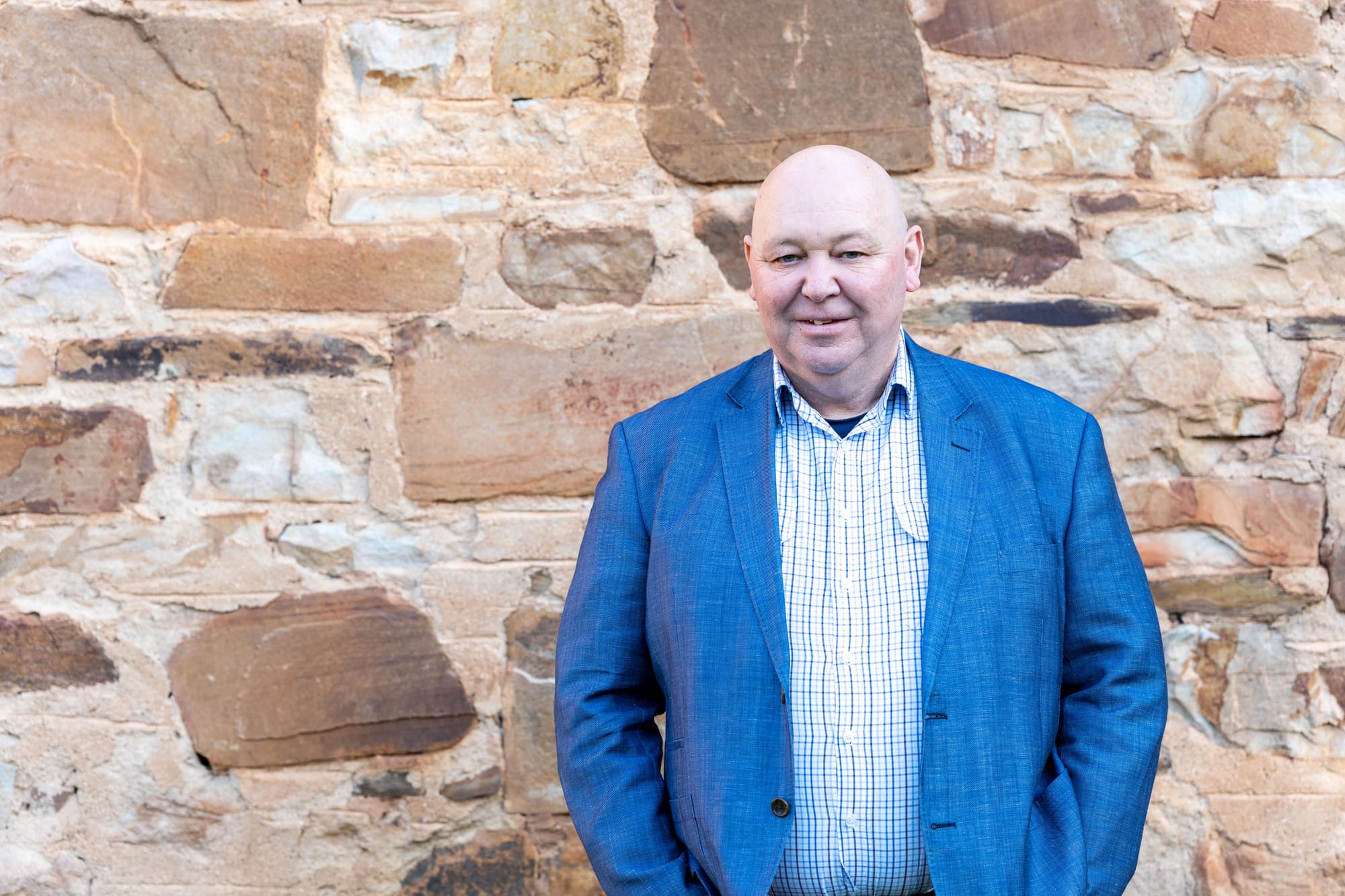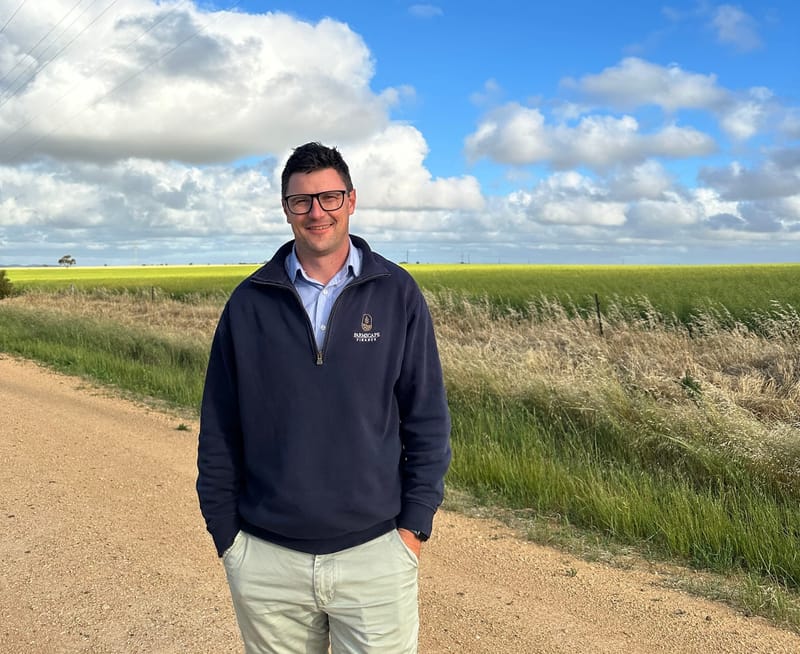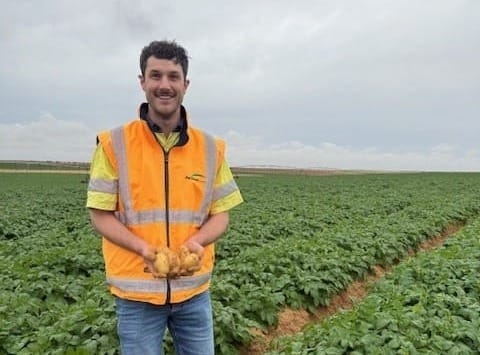Financial assistance that is saving farming lives
WITH farmers experiencing drought conditions unseen in South Australia for decades, it has never been more important to have mental health and financial support available to those doing it tough.

WITH farmers experiencing drought conditions unseen in South Australia for decades, it has never been more important to have mental health and financial support available to those doing it tough.
The drought can be devastating for farmers and their families, affecting not only their livelihoods, but also their mental health and overall wellbeing.
When crops fail, livestock suffers, income drops, and the pressure on farming communities becomes immense.
The isolation of rural life, combined with the emotional strain of financial hardship and uncertainty, can take a heavy toll.
That is why access to both mental health and financial support is so vital.
These services provide more than just practical help — they offer hope, resilience, and connection at a time when farmers often feel most vulnerable.
Providing support helps to ensure they have the strength and resources to endure challenging seasons and rebuild when conditions get better.
Philip Dibben of Financial Services SA, located in Jamestown, has been involved in the finance industry since his first job at State Bank, in 1982.
Financial Services SA offers multi-generational family groups integrated solutions that consider all aspects of their personal, business and farming lives.
With a particular interest in developing and implementing practical and achievable succession plans, they help primary producers, business owners, families and individuals in rural and remote locations to plan now, and for generations to come.
Mr Dibben has noticed firsthand the challenges that farmers have faced in the past 12 months, and said financial and succession planning were essential in reconnecting personal goals with business decisions, to ensure the approach can move from survival to strategy.
“The drought has really tested family resilience, it is probably worst now than what it was when there were shocking crops last year,” he said.
“When you have poor seasonal conditions, you know you are in for a tough year. In some parts of SA things are not looking too bad, but everyone is looking to the skies for a kind finish and the rains are very therapeutic.
“I really feel for other parts of the state that are looking at another shocking year due to not getting the rains they need, and my heart goes out to them.
“When the business is under stress, the family is under stress. And when the family is under stress, the business suffers.
“Purposeful succession planning, reinvestment in local communities, and ethical advisory practices grounded in transparency and empowerment help ensure that renewal reaches beyond individual farms and strengthens the broader agricultural ecosystem.
“Strong financial health allows farm businesses to move beyond short-term survival and focus on long-term strategy.
“This might involve whole-farm planning that integrates landscape management, financial sustainability, and disaster resilience into a unified roadmap; governance structures that clarify roles within multi-generational operations; and regular stakeholder engagement to foster transparency, trust, and collaboration.”
Mr Dibben said the community was trying their best to help and rally around the farmers and their families who were doing it tough.
“I am involved in the Mid North Suicide Prevention Network and we started an initiative a little over a month ago to help out those farmers going through difficult times,” he said.
“It is a pay-it-forward campaign being run at local coffee shops where we are giving free coffees to farmers doing it tough, and we are now starting to get funding support from the local council which is great, and hopefully it gains momentum.
“Sometimes it is just the little things that you can do which can help and if it gets them more than just the usual couple of coffees a week then it is a good thing.
“Hopefully we can broaden out to surrounding areas over time as well.”
Mr Dibben said the recovery could take several years for some farmers.
“At a guess it is significant, some clients have had to borrow a million dollars to finish off last year and then had to turn around and borrow double that again, after getting no income last year to get this year’s crop in,” he said.
“It has a significant impact on clients equity and the recovery is not going to happen just from one season, it is going to be five years plus recovery to get things back on track and clients need longer-term plans.
“We have been through it before in the 1980s, and the 2000s, and just having the tools available for farming families when they need it is vitally important.
“I do not think metropolitan Adelaide has felt the impact of the drought yet as it normally takes a while for the country to flow through to the city.
“When it does though it will be a significant shock given that agriculture makes such a big part of South Australia’s GDP.”
Mr Dibben said he had some tips for farmers to get through the difficult times.
“It is also all about helping them to adjust their goals and longer-term finances with the reality of today and plan for the unexpected.
“Farmers also need to constantly monitor what they have got coming and keep key stakeholders to their business in the loop and not bury your head in the sand. If you don’t communicate with them then it can get nasty quickly.
“For farm businesses recovery is not just about rebuilding infrastructure or restocking paddocks. It’s about recalibrating goals, restoring choices, and exerting control over your circumstances, and reimagining what success looks like.
“Financial health is not just about this season, it’s about legacy. It shapes whether the next generation sees farming as a viable future, whether communities can rebuild their shared identity, and whether advisory practices empower lasting change or merely offer temporary fixes.
“Emerging from farming crises including extreme weather conditions, harvest problems, fruit fly etc is not a return to normal, it is a chance to redefine it.
“Financial health is the lever that turns reactive recovery into proactive renewal. For farm families, it is the difference between surviving and thriving.”
If you wish to get some assistance with your finances or are a farmer going through a tough time you can contact Phillip Dibben and his team online (https://financialservicessa.com.au/).





